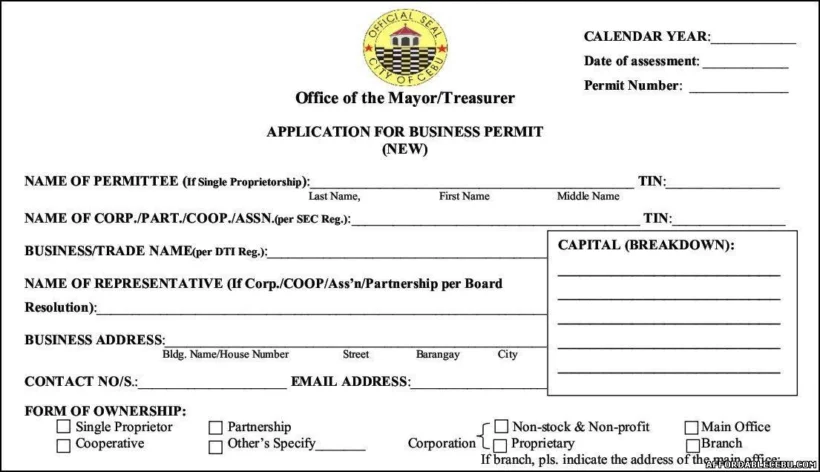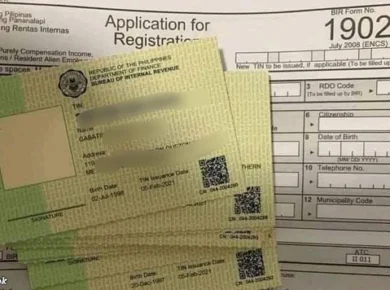Table of Contents
Starting a business in Cebu can be an exciting venture, but it’s essential to make sure you have all the necessary permits. One of the first and most crucial permits you’ll need is the Barangay Business Permit. In this guide, I’ll walk you through the steps to get your Barangay Business Permit in Cebu, using simple language to make things easy to understand. As a Cebuano, I know how important it is to get this right, so let’s dive in!
What is a Barangay Business Permit?
A Barangay Business Permit is a local permit issued by the Barangay (village) where your business will operate. This permit is required to legally run your business in that area and ensures that your business complies with local regulations. It’s one of the first permits you need before you can proceed with other licenses.
Why Do You Need a Barangay Business Permit?
Having a Barangay Business Permit is crucial for several reasons:
1. Legal Operation: It allows you to operate your business legally within the barangay.
2. Community Compliance: It ensures your business adheres to local regulations and standards.
3. Local Support: It helps you gain the support and recognition of the local community.
Steps to Get a Barangay Business Permit in Cebu
- Prepare Your Requirements
Before heading to your barangay hall, make sure you have all the necessary documents. Typically, you’ll need:- Barangay Clearance: Proof that your business location is compliant with barangay rules.
- Business Name Registration: Certificate from the Department of Trade and Industry (DTI) or Securities and Exchange Commission (SEC).
- Proof of Address: Lease contract or proof of ownership for your business location.
- Identification: Valid IDs of the business owner or representatives.
- For more detailed requirements, you can check the Barangay Business Permit Guidelines on the official DTI website.
- Visit Your Barangay Hall
Go to the Barangay Hall where your business will be located. Look for the Business Permits and Licensing Office. Here, you will submit your requirements and fill out the application form. - Pay the Necessary Fees
There will be a small fee for processing your Barangay Business Permit. The amount varies depending on the barangay, so make sure to check the fee structure at your Barangay Hall. You can also inquire about the Barangay Business Permit Fees on the Cebu Provincial Government’s website. - Wait for the Processing
After submitting your documents and paying the fees, the barangay will process your application. This usually takes a few days. Be patient and keep your receipt as proof of payment. - Receive Your Permit
Once your application is approved, you will be issued a Barangay Business Permit. This permit should be displayed prominently at your business location.
Tips for a Smooth Application
- Double-Check Requirements: Make sure you have all the required documents before visiting the Barangay Hall.
- Follow Up: If there are any delays, don’t hesitate to follow up with the Barangay Hall.
- Stay Updated: Regulations and requirements can change, so it’s a good idea to check for any updates on the Barangay Official Website or consult with local authorities.
Personal Opinion
As a Cebuano, I understand how navigating the bureaucracy can sometimes be overwhelming, but getting your Barangay Business Permit is a straightforward process if you’re prepared. The local barangays are quite supportive, and having this permit not only makes your business legal but also integrates you into the community. It’s a small step that makes a big difference in running a successful business here in Cebu.
Conclusion
Getting a Barangay Business Permit is a crucial first step in starting a business in Cebu. By following these simple steps and ensuring you have all the necessary documents, you can smoothly obtain your permit and get your business up and running. Remember, the key is preparation and patience. Good luck with your business venture!
If you need more information or have any specific questions, you can visit the Cebu City Government’s Official Website or contact your local Barangay Hall.


![Simala Mass Schedule 2025 [Official Schedule] Monastery of the Holy Eucharist by Mary Loren Capas](https://hellocebuph.com/wp-content/uploads/2025/01/Monastery-of-the-Holy-Eucharist-by-Mary-Loren-Capas-390x290.webp)
![Where to get NBI clearance in Cebu? [Updated 2024] nbi clearance](https://hellocebuph.com/wp-content/uploads/2024/02/nbi-clearance-390x290.webp)




![List of NBI Branches and Satellites in Cebu, Philippines [Updated Contact Information in 2024] nbi satellite office mandaue](https://hellocebuph.com/wp-content/uploads/2024/04/nbi-satellite-office-mandaue-390x290.webp)

![Travel Guide to Simala Church: Itinerary and Budget [2024] simala church image by Jane Jumaoas](https://hellocebuph.com/wp-content/uploads/2024/02/simala-church-image-by-Jane-Jumaoas-390x290.webp)